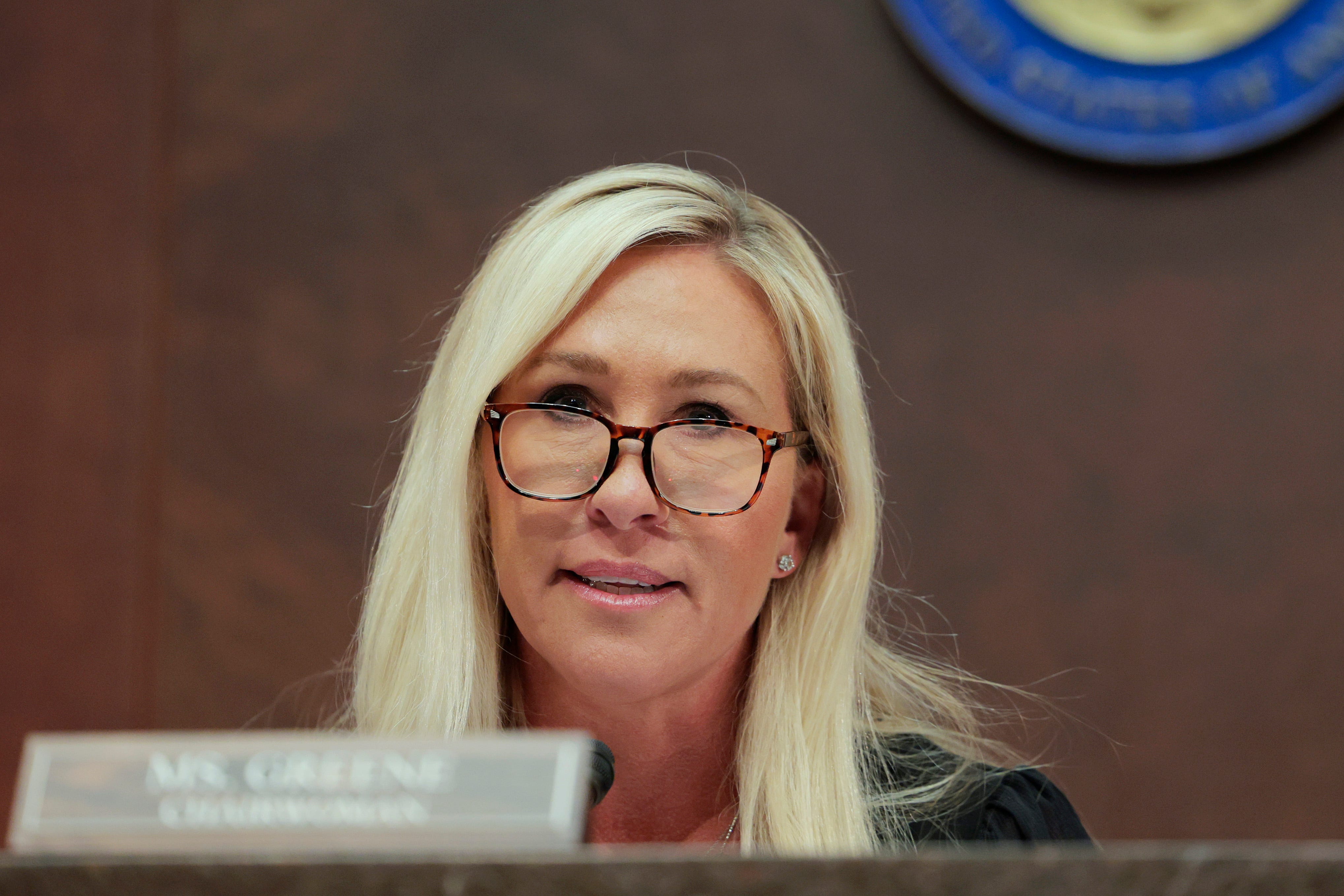
Anna Moneymaker/Getty Images
Shortly after President Donald Trump won a second term in November 2024, House Oversight Committee Chair James Comer of Kentucky announced the creation of the Delivering on Government Efficiency subcommittee in the lower chamber.
The subcommittee was conceived by Republicans to coordinate with Elon Musk‘s “Department of Government Efficiency,” the cost-cutting effort spearheaded by the Trump administration.
Rep. Marjorie Taylor Greene of Georgia, the high-profile GOP lawmaker and staunch Trump ally, was named the chair of the House DOGE subcommittee. And during the panel’s first hearing in February 2025, she tore into what she said was an unsustainable US federal deficit.
“This committee will be laser focused on bringing full transparency to the waste, fraud, and abuse within the federal government and presenting the plans to fix the tremendous problems we expose,” she said at the time.
“We as a country are $36 trillion in debt,” she continued. “It’s absolutely staggering to even comprehend how we as a people, we as a country, found ourselves here.”
Here’s a look at what the House DOGE subcommittee is aiming to accomplish.
Who’s a part of the DOGE subcommittee?
Despite the White House DOGE office being an initiative of a GOP administration, the subcommittee is a bipartisan panel.
In addition to Greene, the other Republicans on the committee include Reps. Tim Burchett of Tennessee; Eric Burlison of Missouri; Michael Cloud of Texas; Pat Fallon of Texas; Brandon Gill of Texas; Brian Jack of Georgia; and William Timmons of South Carolina.
Democratic Rep. Melanie Stansbury of New Mexico is the ranking member on the House DOGE subcommittee.
The additional Democratic lawmakers on the panel include Reps. Greg Casar of Texas; Jasmine Crockett of Texas; Robert Garcia of California; and Stephen Lynch of Massachusetts; and Del. Eleanor Holmes Norton of the District of Columbia.
DOGE has been at the forefront of the conservative effort to cut the federal workforce, which has come in form of multiple layoffs at numerous agencies and departments, as well as a buyout package that was offered at the outset of Trump’s second term.

Kayla Bartkowski/Getty Images
Democratic lawmakers have been highly critical of DOGE, pointing to privacy concerns that have been raised regarding the task force’s staffers gaining access to sensitive financial data — while also criticizing the terminations of thousands of government employees. Immediately after the department’s creation, several nonprofits filed lawsuits against DOGE, arguing that it ran afoul of transparency requirements within the Federal Advisory Committee Act of 1972.
Meanwhile, Republicans remain largely in sync with DOGE’s work.
However, Sen. Lisa Murkowski of Alaska, a key GOP lawmaker in the upper chamber, has emphasized a need for making government less wasteful while also opposing DOGE’s more aggressive moves.
The DOGE subcommittee is distinct from the House DOGE caucus and the Senate DOGE caucus. The two caucuses were crafted to work with the White House DOGE office to reduce spending, but they are not official congressional committees.
What are the goals of the subcommittee?
Greene during the first House DOGE subcommittee hearing said that the panel would “fight the war on waste shoulder to shoulder” alongside Trump, Musk, and the White House DOGE office.
“We as Republicans and Democrats can still hold tightly to our beliefs, but we are going to have to let go of funding them in order to save our sinking ship,” she said.
Since February 2025, the subcommittee has held several hearings, with the focus areas highlighting improper government payments, funding for NPR and PBS, and the federal government’s real estate portfolio.
For years, conservative lawmakers have been critical of federal monies being appropriated for public media. Greene during the subcommittee’s March 2025 hearing with top executives from NPR and PBS derided both networks as “radical left-wing echo chambers.”
Garcia took issue with the tone of questioning from Greene and criticized the chair not having a “serious” hearing.
“Is Elmo now, or has he ever been, a member of the Communist Party?” Garcia asked, with a poster of the beloved children’s figure in the background. “Are we silencing pro-cookie voters?”
In the April 2025 hearing, Republicans on the panel called the government an “irresponsible landlord” and said it had wasted billions of taxpayer dollars with its expansive real estate holdings.
However, jettisoning federal real estate has drawn bipartisan support, which Stansbury noted during the hearing as she also critiqued the Trump administration’s overall approach.
“This is a longstanding issue that many administrations have worked on, and it certainly isn’t something new,” Stansbury said at the time.
“The Trump administration is currently taking a fire sale approach of looting the federal government and stripping it for parts to pay for tax cuts,” she added.
The post The DOGE House subcommittee’s hearings are turning heads. Here’s a look at how the panel functions. appeared first on Business Insider.



















